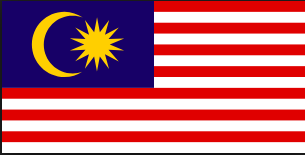|
Issue 12, Semester 1 By Ian Khor I still remember the very first conversation I had with an Australian about Malaysia during an ice breaker activity asked during my first undergraduate tutorial. “Where you from, mate?” “Malaysia.” “Malaysia? Where’s that?” “The country above Singapore.” “You mean Thailand?” “No, below Thailand.” “You mean Bali?” Even now, I smile at the thought of his confused face, seemingly trying to figure out if there are gaps in the map he had in his mind. I didn’t blame him though. Internationally, Malaysia is a small player and seemingly of no consequence. Conduct a Google search of the country before 2018 and you will only find sporadic articles about the country, mostly dry facts about their economy or as part of a bucket list of ‘Places to Visit Before You Die’. As compared to the reams of articles on Trump, China, North Korea or whatever the fuck Pauline Hanson is up to these days, there would often be little to no acknowledgement of Malaysian politics in the global news circles.
However, all of that changed recently. Malaysia’s 14th General Election recently concluded on 9 May 2018, and will live on as a defining moment in the country’s 61-year history. For the very first time, there was a transition of government. The opposition coalition of parties, known as Pakatan Harapan, won enough seats to form a simple majority in government. In the process, they defeated the ruling party, Barisan Nasional, who have been in power since Malaysia’ independence in 1957, and was the longest continuing ruling coalition party in any modern democracy before the recent election. Even House of Cards has nothing on the drama, complexities and contradictions of the recent Malaysian election. Let’s start with the ruling party. Barisal Nasional was led by Najib Razak, the newly ex-Prime Minister of Malaysia. During his reign, Razak faced multiple allegations of corruption, including siphoning off public money to support his wife’s lavish spending, and the infamous 1MDB scandal, where Najib was accused of (again) siphoning off around $1 billion from a national sovereign wealth for his own personal use. The latter is the subject of investigations in several countries such as the US, Switzerland and Singapore. In the end, the rampant corruption, along with rising living costs and a stagnant economy, was too much for the Malaysian public to stomach. They finally voted him out of office. Then, there’s the opposition coalition. Pakatan Harapan is fronted by the 92-year-old Mahathir Mohammad, now considered the oldest Prime Minister in the world due to the recent election win. This is where things get a little complicated. Before this election, he was Malaysia’s 4th Prime Minister and was a part of the ruling coalition, Barisan Nasional. He acted as a mentor to Najib Razak and groomed him for future Prime Ministership, while also being the man responsible for jailing Anwar Ibrahim, who is the actual opposition leader but was unable to run during this election because, you know, jail. The significance of this recent election should not be understated. For the people of Malaysia, it means they can look forward to the future with renewed optimism. Other than the uncontrollable levels of corruption, Barisan Nasional had been sliding into what we might call ‘Kim Jong Un levels of dictatorship’, which included jailing, bribing or even killing anyone who would even try to protest Rajak’s rule. I’m slightly wary at the prospect of having a previous Prime Minister, the one responsible for placing the opposition leader in prison for the first time, leading the country again. However, recent events have me looking forward with renewed optimism. The government has banned the former Prime Minister and his family from travelling overseas whilst reopening the government investigation into 1MDB. Anwar has been given a royal pardon, freed from prison and is ready to take on the mantle of Prime Ministership himself in the next couple of years. The recently formed government includes Wan Azizah, Malaysia’s first female Deputy Prime Minister, and Lim Guan Eng, Malaysia’s first Chinese finance minister, which only goes to show the world the new, progressive face of the incoming government. The controversial goods and services tax has been scrapped and a Council of Elders formed, comprising prominent ex-government officials and Malaysian industry leaders. It is tasked with beginning institutional reforms which will transform Malaysia into a vibrant,democratic and high-income nation by the year 2020. Many oppressed societies around the world continue to live in the shadow of dictatorship. Malaysia’s recent election stands as a beacon of hope to these societies, Democracy, when people exercise their power, still kicks ass. Comments are closed.
|
Archives
October 2022
|



